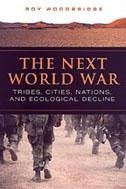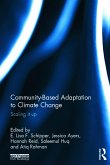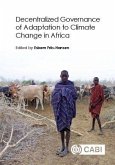Pre-occupied with the war on terrorism, we have lost sight of a more dangerous enemy of social peace and progress - the inability of the world's people to access the ecological goods and services they need to maintain and build their societies. By 2025, the combined demands of continued economic growth and the reduction of global poverty will require, annually, the ecological equivalent of three or four earths. If history is our guide, the options for meeting these enormous "provisioning" needs are extremely limited. Like the tribes, cities, and nations of earlier times, we can fight our neighbours for privileged access to declining ecosystem goods and services. This confrontation will inevitably pit the wealthy beneficiaries of the global economy against the billions of excluded, and lead to accelerated ecological collapse, the derailment of growth, and social chaos. The only alternative to this dismal prospect is to mobilize on a scale as if for war in order to meet this provisioning challenge on the battlefields of directed technological innovation. In The Next World War, Roy Woodbridge argues that the international community must redirect present sustainable development and poverty reduction efforts in ways that place the provisioning of societies at the heart of political decision-making. To move this highly focused agenda forward, he calls on the United Nations to convene a World Forum on Global Provisioning to declare war on ecological decline and set the battle plans for the next world war - the war to equitably provision continued growth.
Hinweis: Dieser Artikel kann nur an eine deutsche Lieferadresse ausgeliefert werden.
Hinweis: Dieser Artikel kann nur an eine deutsche Lieferadresse ausgeliefert werden.








